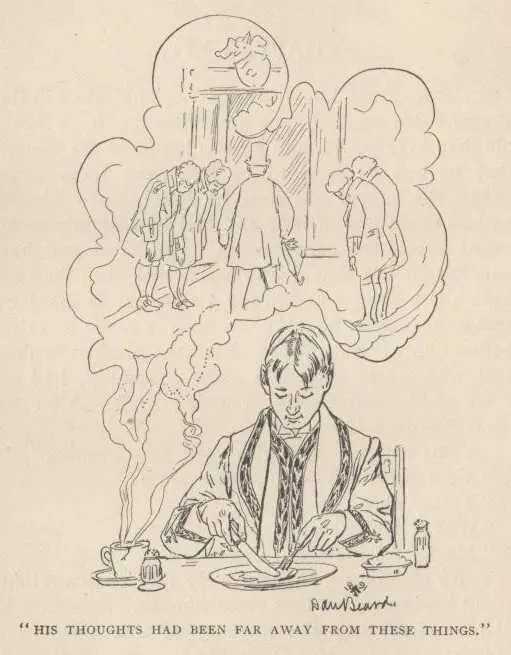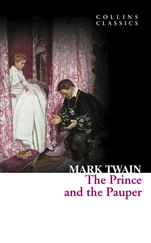Mark Twain - The American Claimant
Здесь есть возможность читать онлайн «Mark Twain - The American Claimant» весь текст электронной книги совершенно бесплатно (целиком полную версию без сокращений). В некоторых случаях можно слушать аудио, скачать через торрент в формате fb2 и присутствует краткое содержание. Год выпуска: 2004, Жанр: Классическая проза, Юмористическая проза, на английском языке. Описание произведения, (предисловие) а так же отзывы посетителей доступны на портале библиотеки ЛибКат.
- Название:The American Claimant
- Автор:
- Жанр:
- Год:2004
- ISBN:нет данных
- Рейтинг книги:5 / 5. Голосов: 1
-
Избранное:Добавить в избранное
- Отзывы:
-
Ваша оценка:
- 100
- 1
- 2
- 3
- 4
- 5
The American Claimant: краткое содержание, описание и аннотация
Предлагаем к чтению аннотацию, описание, краткое содержание или предисловие (зависит от того, что написал сам автор книги «The American Claimant»). Если вы не нашли необходимую информацию о книге — напишите в комментариях, мы постараемся отыскать её.
The American Claimant — читать онлайн бесплатно полную книгу (весь текст) целиком
Ниже представлен текст книги, разбитый по страницам. Система сохранения места последней прочитанной страницы, позволяет с удобством читать онлайн бесплатно книгу «The American Claimant», без необходимости каждый раз заново искать на чём Вы остановились. Поставьте закладку, и сможете в любой момент перейти на страницу, на которой закончили чтение.
Интервал:
Закладка:
He went to one of the telegraph offices in the avenue and got the first end of what Barrow called the "usual Washington courtesy," where "they treat you as a tramp until they find out you're a congressman, and then they slobber all over you." There was a boy of seventeen on duty there, tying his shoe. He had his foot on a chair and his back turned towards the wicket. He glanced over his shoulder, took Tracy's measure, turned back, and went on tying his shoe. Tracy finished writing his telegram and waited, still waited, and still waited, for that performance to finish, but there didn't seem to be any finish to it; so finally Tracy said:
"Can't you take my telegram?"
The youth looked over his shoulder and said, by his manner, not his words:
"Don't you think you could wait a minute, if you tried?"
However, he got the shoe tied at last, and came and took the telegram, glanced over it, then looked up surprised, at Tracy. There was something in his look that bordered upon respect, almost reverence, it seemed to Tracy, although he had been so long without anything of this kind he was not sure that he knew the signs of it.
The boy read the address aloud, with pleased expression in face and voice.
"The Earl of Rossmore! Cracky! Do you know him?"
"Yes."
"Is that so! Does he know you?"
"Well—yes."
"Well, I swear! Will he answer you?"
"I think he will."
"Will he though? Where'll you have it sent?"
"Oh, nowhere. I'll call here and get it. When shall I call?"
"Oh, I don't know—I'll send it to you. Where shall I send it? Give me your address; I'll send it to you soon's it comes."
But Tracy didn't propose to do this. He had acquired the boy's admiration and deferential respect, and he wasn't willing to throw these precious things away, a result sure to follow if he should give the address of that boarding house. So he said again that he would call and get the telegram, and went his way.
He idled along, reflecting. He said to himself, "There is something pleasant about being respected. I have acquired the respect of Mr. Allen and some of those others, and almost the deference of some of them on pure merit, for having thrashed Allen. While their respect and their deference—if it is deference—is pleasant, a deference based upon a sham, a shadow, does really seem pleasanter still. It's no real merit to be in correspondence with an earl, and yet after all, that boy makes me feel as if there was."
The cablegram was actually gone home! the thought of it gave him an immense uplift. He walked with a lighter tread. His heart was full of happiness. He threw aside all hesitances and confessed to himself that he was glad through and through that he was going to give up this experiment and go back to his home again. His eagerness to get his father's answer began to grow, now, and it grew with marvelous celerity, after it began. He waited an hour, walking about, putting in his time as well as he could, but interested in nothing that came under his eye, and at last he presented himself at the office again and asked if any answer had come yet. The boy said,
"No, no answer yet," then glanced at the clock and added, "I don't think it's likely you'll get one to-day."
"Why not?"
"Well, you see it's getting pretty late. You can't always tell where 'bouts a man is when he's on the other side, and you can't always find him just the minute you want him, and you see it's getting about six o'clock now, and over there it's pretty late at night."
"Why yes," said Tracy, "I hadn't thought of that."
"Yes, pretty late, now, half past ten or eleven. Oh yes, you probably won't get any answer to-night."
CHAPTER XIV.
"Mechanics' Debating Club" again—Tracy is comforted by Barrow's remarks—"Fool or no fool, he would grab it" —"Earldom! oh, yes, take it if it offers"
So Tracy went home to supper. The odors in that supper room seemed more strenuous and more horrible than ever before, and he was happy in the thought that he was so soon to be free from them again. When the supper was over he hardly knew whether he had eaten any of it or not, and he certainly hadn't heard any of the conversation. His heart had been dancing all the time, his thoughts had been faraway from these things, and in the visions of his mind the sumptuous appointments of his father's castle had risen before him without rebuke. Even the plushed flunkey, that walking symbol of a sham inequality, had not been unpleasant to his dreaming view. After the meal Barrow said,
"Come with me. I'll give you a jolly evening."
"Very good. Where are you going?"
"To my club."
"What club is that?"
"Mechanics' Debating Club."

Tracy shuddered, slightly. He didn't say anything about having visited that place himself. Somehow he didn't quite relish the memory of that time. The sentiments which had made his former visit there so enjoyable, and filled him with such enthusiasm, had undergone a gradual change, and they had rotted away to such a degree that he couldn't contemplate another visit there with anything strongly resembling delight. In fact he was a little ashamed to go; he didn't want to go there and find out by the rude impact of the thought of those people upon his reorganized condition of mind, how sharp the change had been. He would have preferred to stay away. He expected that now he should hear nothing except sentiments which would be a reproach to him in his changed mental attitude, and he rather wished he might be excused. And yet he didn't quite want to say that, he didn't want to show how he did feel, or show any disinclination to go, and so he forced himself to go along with Barrow, privately purposing to take an early opportunity to get away.
After the essayist of the evening had read his paper, the chairman announced that the debate would now be upon the subject of the previous meeting, "The American Press." It saddened the backsliding disciple to hear this announcement. It brought up too many reminiscences. He wished he had happened upon some other subject. But the debate began, and he sat still and listened.
In the course of the discussion one of the speakers—a blacksmith named Tompkins—arraigned all monarchs and all lords in the earth for their cold selfishness in retaining their unearned dignities. He said that no monarch and no son of a monarch, no lord and no son of a lord ought to be able to look his fellow man in the face without shame. Shame for consenting to keep his unearned titles, property, and privileges—at the expense of other people; shame for consenting to remain, on any terms, in dishonourable possession of these things, which represented bygone robberies and wrongs inflicted upon the general people of the nation. He said, "if there were a laid or the son of a lord here, I would like to reason with him, and try to show him how unfair and how selfish his position is. I would try to persuade him to relinquish it, take his place among men on equal terms, earn the bread he eats, and hold of slight value all deference paid him because of artificial position, all reverence not the just due of his own personal merits."
Tracy seemed to be listening to utterances of his own made in talks with his radical friends in England. It was as if some eavesdropping phonograph had treasured up his words and brought them across the Atlantic to accuse him with them in the hour of his defection and retreat. Every word spoken by this stranger seemed to leave a blister on Tracy's conscience, and by the time the speech was finished he felt that he was all conscience and one blister. This man's deep compassion for the enslaved and oppressed millions in Europe who had to bear with the contempt of that small class above them, throned upon shining heights whose paths were shut against them, was the very thing he had often uttered himself. The pity in this man's voice and words was the very twin of the pity that used to reside in his own heart and come from his own lips when he thought of these oppressed peoples.
Читать дальшеИнтервал:
Закладка:
Похожие книги на «The American Claimant»
Представляем Вашему вниманию похожие книги на «The American Claimant» списком для выбора. Мы отобрали схожую по названию и смыслу литературу в надежде предоставить читателям больше вариантов отыскать новые, интересные, ещё непрочитанные произведения.
Обсуждение, отзывы о книге «The American Claimant» и просто собственные мнения читателей. Оставьте ваши комментарии, напишите, что Вы думаете о произведении, его смысле или главных героях. Укажите что конкретно понравилось, а что нет, и почему Вы так считаете.









